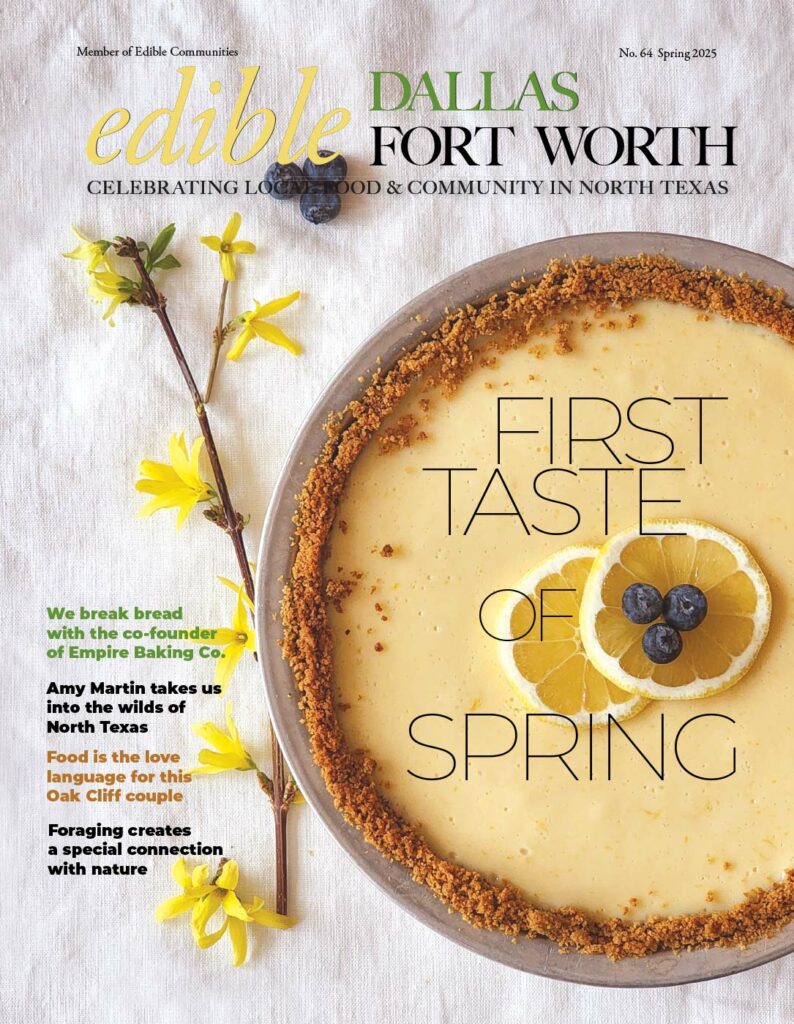STORY – DANIEL CUNNINGHAM PHOTOGRAPHY – TERESA RAFIDI
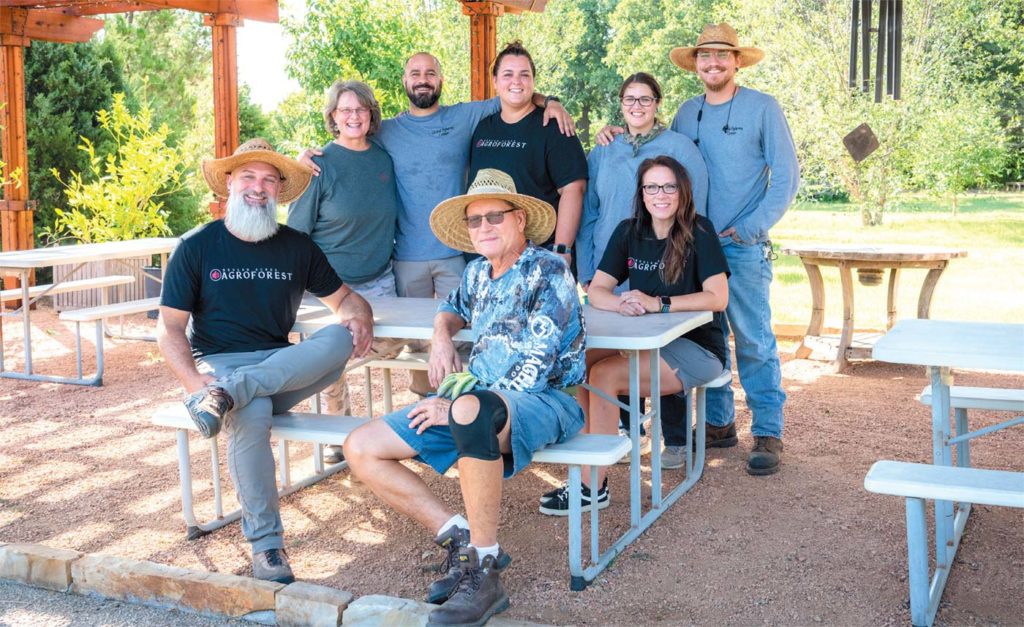
photography Teresa Rafidi
Feeding the Body, Mind and Soul
In Denton County, one of the fastest growing counties in the nation, lies a 40-acre urban farm reconnecting people with the land while building resilience and awareness within the community. Twelve years ago, Glory of Zion International Ministries, a non-denominational, faith-based organization, purchased the abandoned and dilapidated Boeing aircraft parts factory in the city of Corinth and set out to connect people of all backgrounds, races, and walks of life with its Global Spheres Center. The facility not only serves as a neighborhood hub, with an on-site hair salon, fitness center, and resale shop, but also offers affordable classes in art, dance, theater and music.
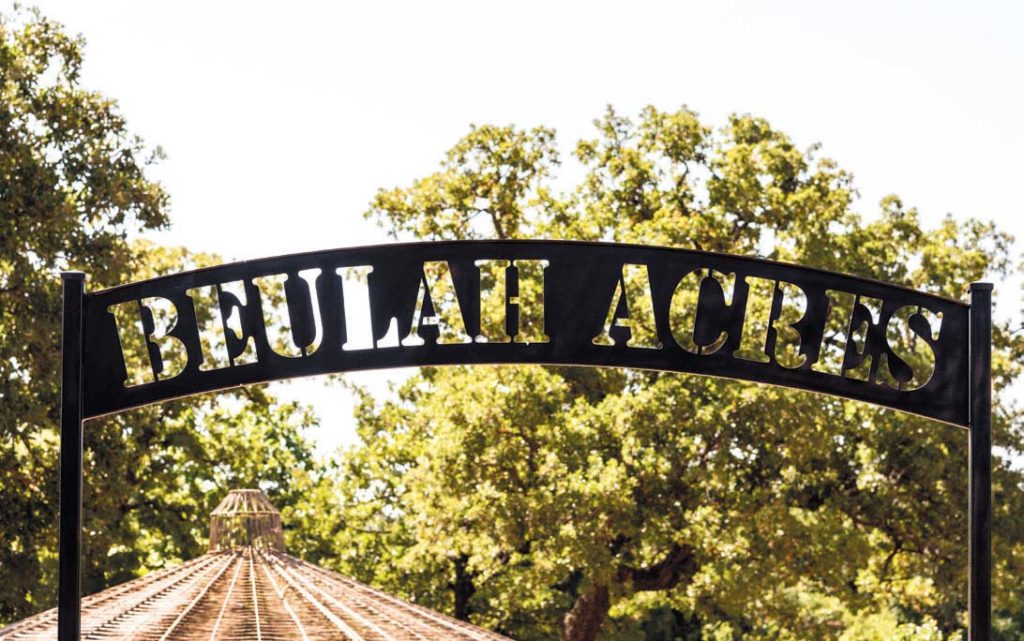
LIFTING OFF
The property’s warehouse-style commercial buildings (which comprise roughly four acres) once produced wiring harnesses for both commercial jetliners and military aircraft. While they are certainly impressive, initially they were so drab that the enterprising organization expanded their vision to also take advantage of the more easily usable outdoor space. This effort has transformed that once-barren landscape into something quite fruitful.
For over a decade, a highly ornamental prayer garden has highlighted some of the best adapted landscape plants for North Texas and is organized in sections representing the 12 tribes of Israel. The carefully tended spot has long been a gathering place and teaching garden for members of its church (which meets at the facility) but is also open to the public through tours and a variety of hands-on classes.
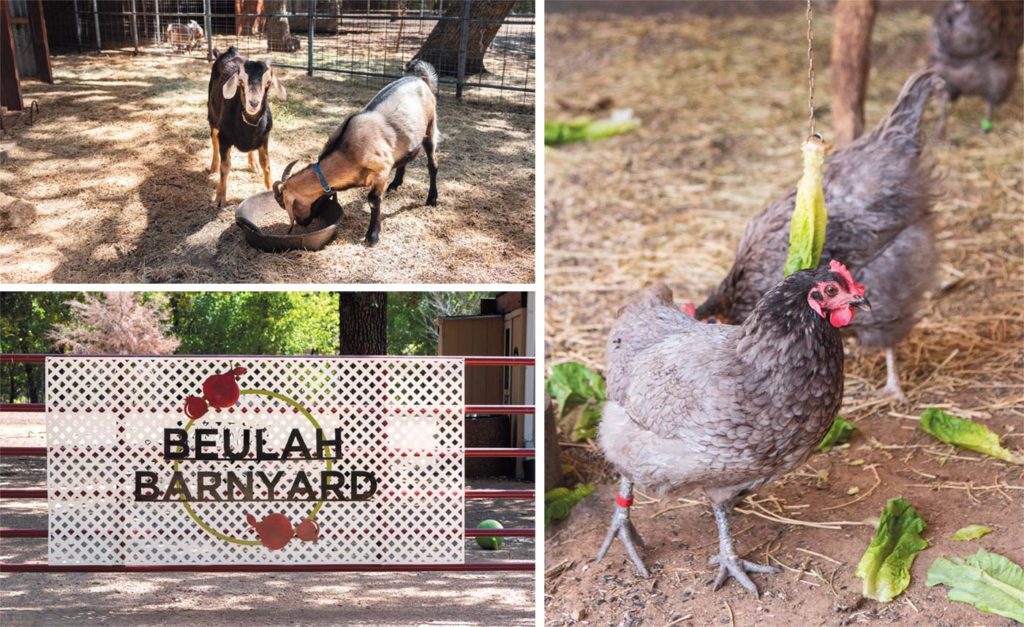
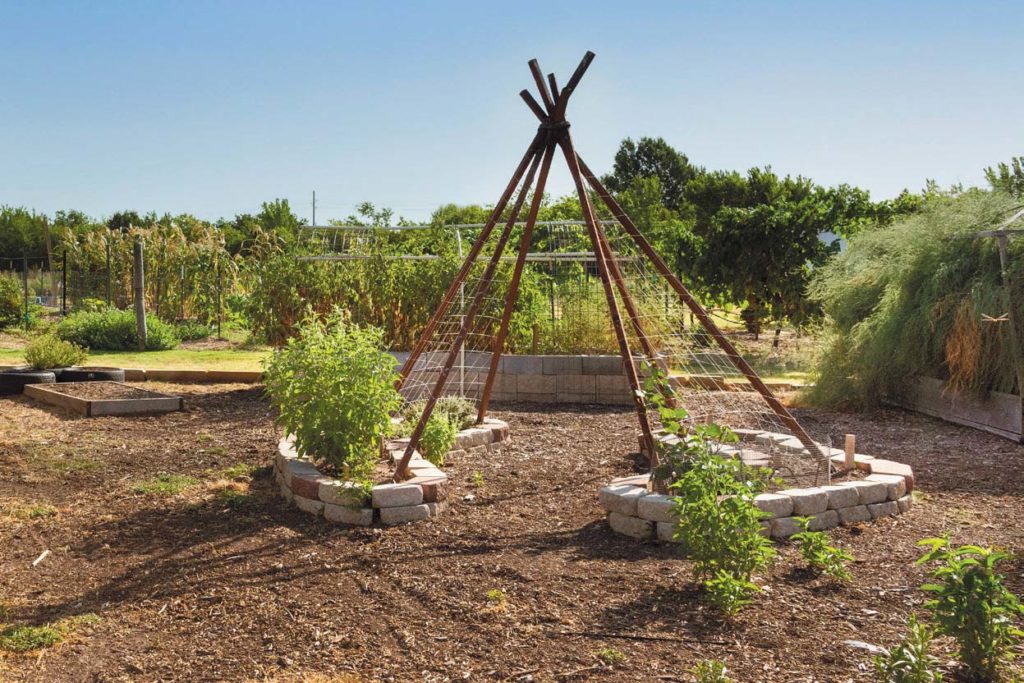
BRANCHING OUT WITH A FOREST GARDEN
With hopes of reconnecting its parishioners (and the greater community) to the land, Glory of Zion International Ministries added a 2.5-acre on-site “food forest” withing the 25-acre of land, which they named the Beulah Acres Agroforest. The mission at Beulah Acres is to provide no-to-low-cost hands-on learning opportunities to the community with a focus on sustainable gardening, nutrition, food preservation and preparation, in addition to a natural emphasis on photography and the arts. Or in other words: they aim to feed the body, mind and soul.
Daniel Arenas Richieri is the Agroforest project manager and lead educator who designed the food forest. He is part of a hard-working 16-member garden crew, leading the development at the Agroforest Portion (consisting of herbalists, cooks, master gardeners and naturalists) who harvest, maintain, and expand the forest gardens with the help of volunteers.
“Every Wednesday morning is our volunteer day at the Agroforest. We often have Master Gardeners, Master Naturalists, members of the Keep Corinth Beautiful advisory board, representatives of the City of Corinth, along with kids, members of the congregation and Ministry,” says Richieri.
WHAT IS A FOOD FOREST?
Much like a traditional forest comprised of different layers of vegetation, a “food forest” or “forest garden” is designed using diverse natives and perennial plantings of edible trees, shrubs, flowers, vines, and groundcovers, mimicking the ecosystems and patterns found in nature. The goal is to produce food at different canopy levels to maximize production and to overcome the pest and disease cycles often problematic in traditional monocultures of annual crops.
At Beulah Acres, that means intercropping with an extremely diverse selection of edible species, in addition to nurturing specially selected support species that help add nitrogen to the soil and flowering plants that support pollinators. The result is an efficient forested garden whose production exceeds the sum of its parts. While it might look a bit more wild than a traditional garden or orchard, the design reduces the amount of maintenance needed and helps to create a garden that uses fewer resources.
While they gather traditional garden produce like fruits and vegetables, the Beulah Acres Team also processes their botanicals into soaps, lotions, and infused oils to increase productivity and extend the shelf life of the harvest. This not only reduces garden waste but has also expanded what they can sell at their monthly Sunday morning farmer’s market. “There are all types of cosmetic products, medicinal products, home remedies, and kitchen products like dried herbs,” Richieri explains. But those bountiful harvests reaped from the seeds of success haven’t come easily. Sustainably minded agriculture arrives with its own set of challenges, especially when dealing with pests and disease and creating fertile soil.
“It does take time,” Richieri says, referring to the arduous process of building a multi-tiered/multi-canopied forest environment, meant to create an abundance of food throughout.
“We are building our own ecosystem where we are restoring, enhancing, and promoting plants that work within our ecoregion. In time, we continue to see more surplus and abundance,” he adds.
That surplus has already grown significantly in the two-and-a-half years since the expansion, and now, when the harvests exceed what can be used, they donate their surplus to Our Daily Bread, another local interfaith non-profit focused on feeding, sheltering, and caring for the homeless and at-risk residents in Denton County.
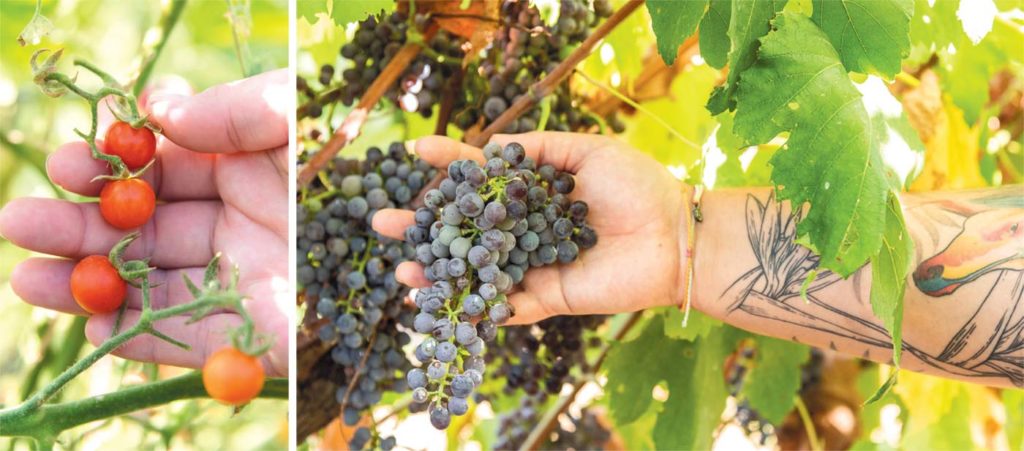
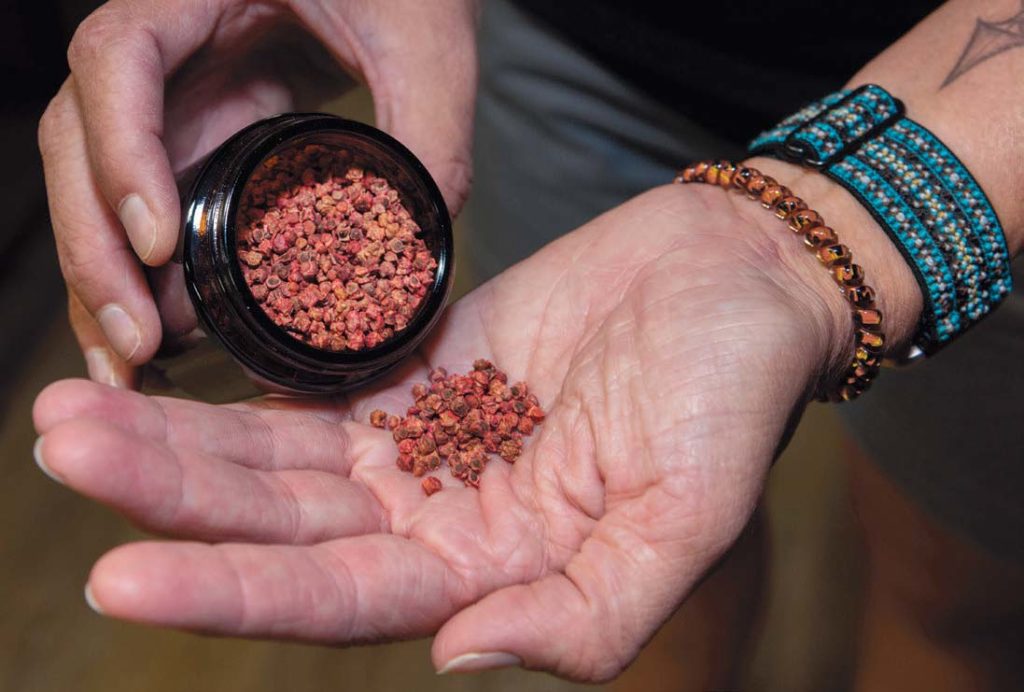
DIGGING DEEPER INTO REGENERATIVE AGRICULTURE
All of the agriculture-based projects at Beulah Acres push past the traditional tenets of “sustainability” and aim for the “regenerative.” Regenerative agriculture expands upon traditional sustainability, which is vital in addressing and overcoming the environmental impacts of what many experts describe as a growing climate crisis.
As explained by the Colorado-based Savory Institute: “Sustainable practices, by definition, seek to maintain the same, whereas regenerative practices recognize that natural systems are currently impacted, and it applies management techniques to restore the system.”
“One thing we are very interested about, on this piece of property, is how can we connect the full circle of life. It’s not just about good soil quality, good water quality, putting the right plant in the right place, incorporating the seasonal and perennial crops, it’s about experiencing that whole connection from seed to seed,” explains Richieri.
And although the Beulah Acres Agroforest’s underlying goal is to produce food, their regenerative approach encompasses many facets of any one plant’s life cycle. That holistic mindset is driven by the understanding that humans are an integral part of the ecosystem. By becoming better stewards of the land, Richieri believes they can be a key part of restoring a balance and ultimately creating a positive feedback loop.
“How do we play our role working with the wildlife species, within the ecosystem, within the ecoregion we are trying to mimic?” Richieri says.
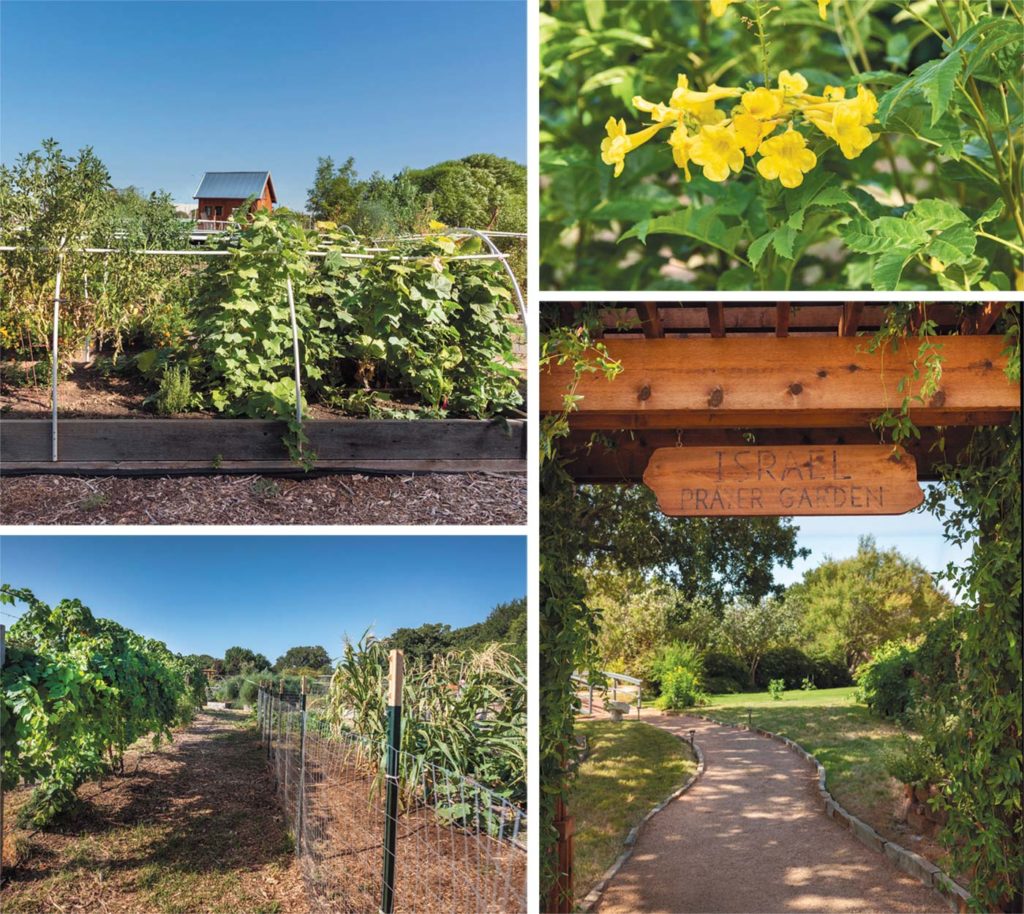
LEADING BY EXAMPLE
The Beulah Acres Team started out a decade ago with a community garden where members of the community could learn and apply more sustainable gardening methods with help from the garden team.
An outdoor classroom and propagation greenhouse followed. Now, based on Richieri’s original design and expanded needs, they’ve also incorporated sections dedicated to showcasing the indigenous people’s “Three Sisters” model twining corn, beans and squash; keyhole gardens (organized around a compost pile); German hügelkultur gardening that incorporates water-saving spongy wood-filled hills; spiral gardens; and several vertical gardens or tunnels that create a more efficient use of space. All integrate companion planting, support species, and crop rotation where appropriate, taking advantage of those plant relationships which boost production by adding nutrients and controlling pest problems.
The entire Agroforest area thrives without the aid of synthetically derived pesticides or fertilizers. In addition to interplanting with nitrogen- fixing support species, nutrients come from compost and compost teas, processed on site by combining plant-based refuse and animal waste from the Beulah Barnyard’s chickens, donkeys, ducks, goats, and sheep.
“What we try to do is to position different styles of gardening . . . something more natural, something more functional, something more traditional, utilizing animals as well as Native American agriculture,” explains Richieri.
The current project is to expand Beulah Acres’ tiny-house demonstration, with plans to transition it to an “off-the-grid” building, utilizing solar energy and rainwater harvesting.
“It’s all permaculture-based,” he adds, referring to the intricately layered systems and demonstration components that make up the agroforest.
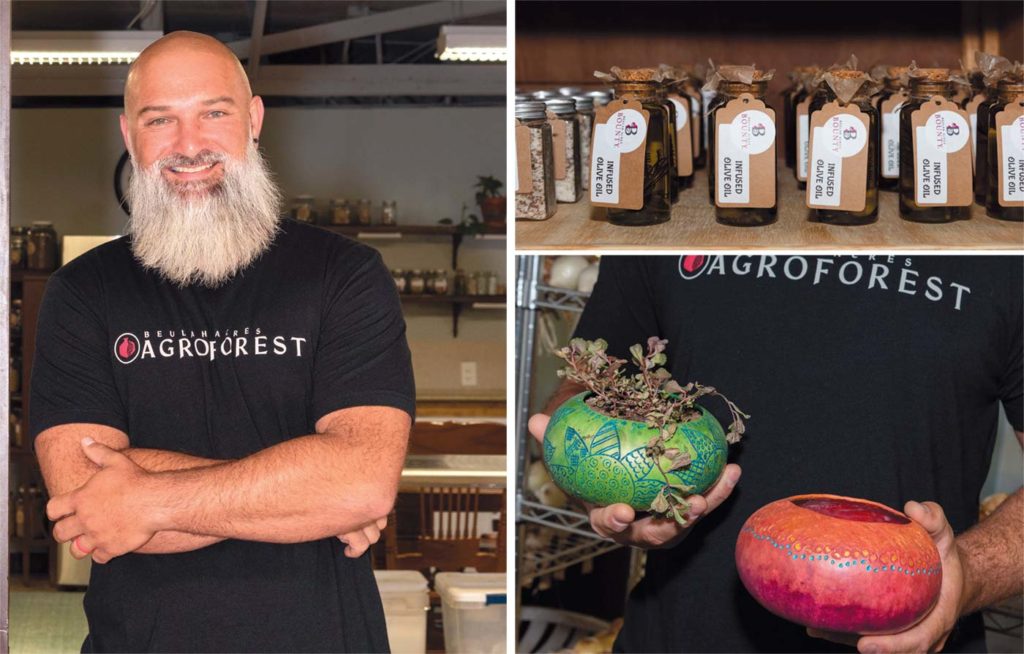
CULTIVATING THE MIND AND SPIRIT
The Beulah Acres Agroforest was purposefully designed to be demonstrational and educational, both in its physical design and through the hands-on classes that are taught both inside and outdoors. They are targeted towards gardeners and creatives of all ages and play a vast part in their mission.
“On site we have a Creative Arts Studio called Illuminate. They provide all different types of classes for kids” says Richieri.
As part of that outreach program with Illuminate, the community can take advantage of a year-round after school program called “Global Gardeners,” built on the state-developed Texas Master Naturalist’s Science With Attitude (SWAt) and Junior Master Gardener curricula. “As part of Beulah Acres, there are also all kinds of adult classes: we partner with master gardeners a lot!” Richieri adds.
In addition to gardening-based programs taught in their outdoor classroom, they also offer classes in pottery, painting, drawing and photography in their garden-adjacent art studio (Beulah Acres Center) where both teachers and students often bring in elements from the outdoors for inspiration.
“One of the big-time focuses here is not just connecting with the land but also restoring it in a way [so] that we can gain insight to stimulate our creativity. We believe that everybody is creative somehow,” explains Richieri. And the gardens here can nourish those abilities.
“For example, we plant gourds that vine to offer a protective canopy for other crops below. We harvest them and dehydrate the gourds and one of our teachers, Kathy, is a super-awesome artist who turns them into pots and utensils,” says Richieri.
That holistic, syntropic, regenerative approach means finding new connections at each step of the life cycle, from the sowing of seeds to harvest, to the time seeds are sown again.
“Working with nature, there are many methods and strategies you can apply to the garden. But one of the things we are trying to do here is to watch and learn, and listen,” Richieri says.
- Contact info: agroforest@beulahacres.org
- agroforest.beulahacres.com
WHAT IS PERMACULTURE?
Combining the words permanence and agriculture, permaculture is both a philosophy and a practice which integrates land, people, the environment, and available resources by taking advantage of their naturally mutually beneficial synergies. Using a multidisciplinary, holistic mindset in regard to food, energy, and shelter, permaculture-based projects often turn wastes into a resource, mimicking the diversity, stability, and resilience of natural ecosystems. The underlying goal is to work with nature, rather than against it, making it one of the most popular frameworks under the umbrella of regenerative agriculture.
Daniel Cunningham, Horticulturist with Texas A&M AgriLife's Water University program. His primary focus is a holistic approach to landscaping and food production systems. Cunningham specializes in Texas native plants and trees, vegetable gardening, edible landscaping, rainwater harvesting and is passionate about utilizing landscapes as habitat for benecial wildlife. For more gardening advice om Daniel, tune in to NBC DFW (Channel 5) on Sunday mornings or ask @TxPlantGuy on Facebook, Twitter or Instagram.
- Daniel Cunninghamhttps://www.edibledfw.com/author/dcunningham/
- Daniel Cunninghamhttps://www.edibledfw.com/author/dcunningham/
- Daniel Cunninghamhttps://www.edibledfw.com/author/dcunningham/
- Daniel Cunninghamhttps://www.edibledfw.com/author/dcunningham/


